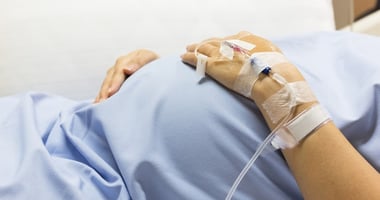Previous studies suggest that certain prenatal supplements can enhance fetal brain development, but...
Dietary Supplement During Pregnancy Could Reduce Risk of Schizophrenia
 |
If the findings are replicated, it is possible that choline supplementation during pregnancy might serve as a broad public health measure to prevent schizophrenia, in the same way that folic acid today is used to help prevent birth defects. Choline has been shown to activate receptors in the brain that facilitate development of “cerebral inhibition,” a term for faculties—such as sensory gaiting and attention—that help the brain manage and organize incoming sensory stimuli and that are deficient in schizophrenia.
In the study, 46 pregnant women were randomized in the second trimester of pregnancy to receive a dietary supplement of phosphatidylcholine and 47 women to receive placebo. Seventy-six percent of the infants whose mothers received choline supplementation were found to have intact cerebral inhibition according to a electrophysiological test, compared with just 43 percent of the infants whose mothers got placebo. Moreover, a genotype associated with schizophrenia was correlated with diminished cerebral inhibition in the placebo-group, but not in the choline group.
AJP Editor and senior author of the study Robert Freedman, M.D., told Psychiatric News, “The hypothesis that improving prenatal brain development might decrease the risk of developing schizophrenia later in life merges decades of clinical observation of infants who later developed schizophrenia with recent findings that many genes that increase risk for schizophrenia have roles in fetal brain development."
The study, “Perinatal Choline Effects on Neonatal Pathophysiology Related to Later Schizophrenia Risk,” can be accessed here.
(Image: Shutterstock/S.Borisov)





